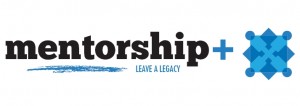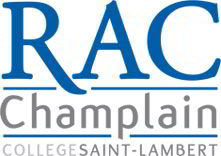Building Bridges to the Labour Market: A Dilemma for Immigrants
by Eric Poehlman | November 15, 2012
New immigrants to Canada and Quebec frequently encounter a number of challenges in the labour market, including:
 The first tier strategy proposes to work with skilled immigrants through the Recognition of Acquired Competencies (RAC) process. The RAC process recruits and works with candidates who have significant experience in their field. These individuals have already developed a set of core competencies that, up to this point, have not been formally recognized. RAC attempts to formally recognize these competencies using a set of defined evaluations that replicate the skill sets required in the field. In effect, we are asking candidates to “show us what they know” – instead of relearning skills and knowledge that have already been obtained through life and work experience. Successful completion of the RAC process culminates in the awarding of an AEC (Attestation d’études collégiales). For people who have no experience in the field, an AEC could also be pursued through Champlain College’s Centre for Continuing Education. We would suggest that the Canadian college degree assists with the transition of the skilled immigrant into the job market – now with Canadian credentials.
The first tier strategy proposes to work with skilled immigrants through the Recognition of Acquired Competencies (RAC) process. The RAC process recruits and works with candidates who have significant experience in their field. These individuals have already developed a set of core competencies that, up to this point, have not been formally recognized. RAC attempts to formally recognize these competencies using a set of defined evaluations that replicate the skill sets required in the field. In effect, we are asking candidates to “show us what they know” – instead of relearning skills and knowledge that have already been obtained through life and work experience. Successful completion of the RAC process culminates in the awarding of an AEC (Attestation d’études collégiales). For people who have no experience in the field, an AEC could also be pursued through Champlain College’s Centre for Continuing Education. We would suggest that the Canadian college degree assists with the transition of the skilled immigrant into the job market – now with Canadian credentials.
 The second tier strategy is to then work with the skilled immigrant during the transition into the job market. To accomplish this objective, Champlain College Saint-Lambert has launched a mentoring program named Mentorship+ which seeks to match skilled immigrants with senior mentors in the field. The goal is to “coach” individuals while on the job, while assuring that the “newly hired skilled employee” understands the performance criteria and behaviour of Canadian businesses. We believe that this program will assist skilled immigrants in retention and promotion within the work environment. Moreover, in the long-term, the symbiotic nature of the mentor-mentee team enhances the cultural diversity of the workforce. Collectively, Mentorship+ extends the RAC services directly into the employment arena to assist the skilled immigrant “at work.” These mentoring services are also available to students that are working towards their AEC via Champlain College’s Centre for Continuing Education.
Anna Maria Zaidman, who directs the Mentorship+ services at Champlain College Saint-Lambert, has suggested that Mentorship+ is “‘a missing link for the skilled immigrant. Mentorship+ assists with job retention and career development by establishing a close working relationship between mentor and mentee. Mentoring gives access to a network of colleagues who can help new hires integrate within a work team, a process that can be especially challenging when those hires have recently immigrated to Canada. They may encounter prejudice, discrimination or simply a lack of understanding of their experience by supervisors or fellow workers. Recent immigrants may also be at a disadvantage because they often don’t understand unspoken cultural codes which their employers/colleagues assume they should know – mentoring programs help break down these barriers.”
Collectively, we would suggest that the continuous education strategy of combined RAC and Mentorship+ services has the potential to offer direct and indirect benefits at several levels. Skilled immigrants benefit from the opportunity to place learning in context and gain guided hands-on experiences focused on career success.
The second tier strategy is to then work with the skilled immigrant during the transition into the job market. To accomplish this objective, Champlain College Saint-Lambert has launched a mentoring program named Mentorship+ which seeks to match skilled immigrants with senior mentors in the field. The goal is to “coach” individuals while on the job, while assuring that the “newly hired skilled employee” understands the performance criteria and behaviour of Canadian businesses. We believe that this program will assist skilled immigrants in retention and promotion within the work environment. Moreover, in the long-term, the symbiotic nature of the mentor-mentee team enhances the cultural diversity of the workforce. Collectively, Mentorship+ extends the RAC services directly into the employment arena to assist the skilled immigrant “at work.” These mentoring services are also available to students that are working towards their AEC via Champlain College’s Centre for Continuing Education.
Anna Maria Zaidman, who directs the Mentorship+ services at Champlain College Saint-Lambert, has suggested that Mentorship+ is “‘a missing link for the skilled immigrant. Mentorship+ assists with job retention and career development by establishing a close working relationship between mentor and mentee. Mentoring gives access to a network of colleagues who can help new hires integrate within a work team, a process that can be especially challenging when those hires have recently immigrated to Canada. They may encounter prejudice, discrimination or simply a lack of understanding of their experience by supervisors or fellow workers. Recent immigrants may also be at a disadvantage because they often don’t understand unspoken cultural codes which their employers/colleagues assume they should know – mentoring programs help break down these barriers.”
Collectively, we would suggest that the continuous education strategy of combined RAC and Mentorship+ services has the potential to offer direct and indirect benefits at several levels. Skilled immigrants benefit from the opportunity to place learning in context and gain guided hands-on experiences focused on career success. CEGEPs and government organizations benefit from the development of a unique work-based career program that is adaptable, sustainable, and replicable with the potential to become a national model. Businesses benefit because they gain access to a pool of highly qualified candidates who are technically and personally prepared for and excited for the opportunity of technical careers.
If you’re a skilled immigrant who’s facing challenges in gaining recognition, we’d be interested in hearing about your experiences. We’re always looking for the best way to help others succeed in their careers.
References
Schellenberg, Grant and Hélène Maheux. 2007. “Immigrants’ perspectives on their first four years in Canada: Highlights from three waves of the Longitudinal Survey of Immigrants to Canada.” Canadian Social Trends. Special Edition. Statistics Canada Catalogue no. 11-008-XWE. (Accessed February 5, 2010.)
CEGEPs and government organizations benefit from the development of a unique work-based career program that is adaptable, sustainable, and replicable with the potential to become a national model. Businesses benefit because they gain access to a pool of highly qualified candidates who are technically and personally prepared for and excited for the opportunity of technical careers.
If you’re a skilled immigrant who’s facing challenges in gaining recognition, we’d be interested in hearing about your experiences. We’re always looking for the best way to help others succeed in their careers.
References
Schellenberg, Grant and Hélène Maheux. 2007. “Immigrants’ perspectives on their first four years in Canada: Highlights from three waves of the Longitudinal Survey of Immigrants to Canada.” Canadian Social Trends. Special Edition. Statistics Canada Catalogue no. 11-008-XWE. (Accessed February 5, 2010.)
- Not having enough Canadian work experience;
- A lack of connections in the job market, and;
- Foreign credentials that are frequently unrecognized.
Our Solutions
The Champlain College Saint-Lambert Centre for Continuing Education has taken these issues to heart by developing services that directly address immigrant employment challenges. We are currently exploring with implementing a two-tier strategy that seeks to provide seamless training and mentoring to skilled immigrants. The first tier strategy proposes to work with skilled immigrants through the Recognition of Acquired Competencies (RAC) process. The RAC process recruits and works with candidates who have significant experience in their field. These individuals have already developed a set of core competencies that, up to this point, have not been formally recognized. RAC attempts to formally recognize these competencies using a set of defined evaluations that replicate the skill sets required in the field. In effect, we are asking candidates to “show us what they know” – instead of relearning skills and knowledge that have already been obtained through life and work experience. Successful completion of the RAC process culminates in the awarding of an AEC (Attestation d’études collégiales). For people who have no experience in the field, an AEC could also be pursued through Champlain College’s Centre for Continuing Education. We would suggest that the Canadian college degree assists with the transition of the skilled immigrant into the job market – now with Canadian credentials.
The first tier strategy proposes to work with skilled immigrants through the Recognition of Acquired Competencies (RAC) process. The RAC process recruits and works with candidates who have significant experience in their field. These individuals have already developed a set of core competencies that, up to this point, have not been formally recognized. RAC attempts to formally recognize these competencies using a set of defined evaluations that replicate the skill sets required in the field. In effect, we are asking candidates to “show us what they know” – instead of relearning skills and knowledge that have already been obtained through life and work experience. Successful completion of the RAC process culminates in the awarding of an AEC (Attestation d’études collégiales). For people who have no experience in the field, an AEC could also be pursued through Champlain College’s Centre for Continuing Education. We would suggest that the Canadian college degree assists with the transition of the skilled immigrant into the job market – now with Canadian credentials.
 The second tier strategy is to then work with the skilled immigrant during the transition into the job market. To accomplish this objective, Champlain College Saint-Lambert has launched a mentoring program named Mentorship+ which seeks to match skilled immigrants with senior mentors in the field. The goal is to “coach” individuals while on the job, while assuring that the “newly hired skilled employee” understands the performance criteria and behaviour of Canadian businesses. We believe that this program will assist skilled immigrants in retention and promotion within the work environment. Moreover, in the long-term, the symbiotic nature of the mentor-mentee team enhances the cultural diversity of the workforce. Collectively, Mentorship+ extends the RAC services directly into the employment arena to assist the skilled immigrant “at work.” These mentoring services are also available to students that are working towards their AEC via Champlain College’s Centre for Continuing Education.
Anna Maria Zaidman, who directs the Mentorship+ services at Champlain College Saint-Lambert, has suggested that Mentorship+ is “‘a missing link for the skilled immigrant. Mentorship+ assists with job retention and career development by establishing a close working relationship between mentor and mentee. Mentoring gives access to a network of colleagues who can help new hires integrate within a work team, a process that can be especially challenging when those hires have recently immigrated to Canada. They may encounter prejudice, discrimination or simply a lack of understanding of their experience by supervisors or fellow workers. Recent immigrants may also be at a disadvantage because they often don’t understand unspoken cultural codes which their employers/colleagues assume they should know – mentoring programs help break down these barriers.”
Collectively, we would suggest that the continuous education strategy of combined RAC and Mentorship+ services has the potential to offer direct and indirect benefits at several levels. Skilled immigrants benefit from the opportunity to place learning in context and gain guided hands-on experiences focused on career success.
The second tier strategy is to then work with the skilled immigrant during the transition into the job market. To accomplish this objective, Champlain College Saint-Lambert has launched a mentoring program named Mentorship+ which seeks to match skilled immigrants with senior mentors in the field. The goal is to “coach” individuals while on the job, while assuring that the “newly hired skilled employee” understands the performance criteria and behaviour of Canadian businesses. We believe that this program will assist skilled immigrants in retention and promotion within the work environment. Moreover, in the long-term, the symbiotic nature of the mentor-mentee team enhances the cultural diversity of the workforce. Collectively, Mentorship+ extends the RAC services directly into the employment arena to assist the skilled immigrant “at work.” These mentoring services are also available to students that are working towards their AEC via Champlain College’s Centre for Continuing Education.
Anna Maria Zaidman, who directs the Mentorship+ services at Champlain College Saint-Lambert, has suggested that Mentorship+ is “‘a missing link for the skilled immigrant. Mentorship+ assists with job retention and career development by establishing a close working relationship between mentor and mentee. Mentoring gives access to a network of colleagues who can help new hires integrate within a work team, a process that can be especially challenging when those hires have recently immigrated to Canada. They may encounter prejudice, discrimination or simply a lack of understanding of their experience by supervisors or fellow workers. Recent immigrants may also be at a disadvantage because they often don’t understand unspoken cultural codes which their employers/colleagues assume they should know – mentoring programs help break down these barriers.”
Collectively, we would suggest that the continuous education strategy of combined RAC and Mentorship+ services has the potential to offer direct and indirect benefits at several levels. Skilled immigrants benefit from the opportunity to place learning in context and gain guided hands-on experiences focused on career success. CEGEPs and government organizations benefit from the development of a unique work-based career program that is adaptable, sustainable, and replicable with the potential to become a national model. Businesses benefit because they gain access to a pool of highly qualified candidates who are technically and personally prepared for and excited for the opportunity of technical careers.
If you’re a skilled immigrant who’s facing challenges in gaining recognition, we’d be interested in hearing about your experiences. We’re always looking for the best way to help others succeed in their careers.
References
Schellenberg, Grant and Hélène Maheux. 2007. “Immigrants’ perspectives on their first four years in Canada: Highlights from three waves of the Longitudinal Survey of Immigrants to Canada.” Canadian Social Trends. Special Edition. Statistics Canada Catalogue no. 11-008-XWE. (Accessed February 5, 2010.)
CEGEPs and government organizations benefit from the development of a unique work-based career program that is adaptable, sustainable, and replicable with the potential to become a national model. Businesses benefit because they gain access to a pool of highly qualified candidates who are technically and personally prepared for and excited for the opportunity of technical careers.
If you’re a skilled immigrant who’s facing challenges in gaining recognition, we’d be interested in hearing about your experiences. We’re always looking for the best way to help others succeed in their careers.
References
Schellenberg, Grant and Hélène Maheux. 2007. “Immigrants’ perspectives on their first four years in Canada: Highlights from three waves of the Longitudinal Survey of Immigrants to Canada.” Canadian Social Trends. Special Edition. Statistics Canada Catalogue no. 11-008-XWE. (Accessed February 5, 2010.)
Filed under: Mentoring, RAC for Immigrants
Tags: anna-maria-zaidman
3 responses to “Building Bridges to the Labour Market: A Dilemma for Immigrants”
Leave a Reply
You must be logged in to post a comment.


Hello M. Poehlman,
When i finish to read your present document, I said, here’s someone who has identified the equation of Immigrants in Canada. And this problem of labour make to us to loose lot of time.
I perfectly support your initiative RAC & Mentorat.This can be an interesting draft. Continue to refine and readjust the idea, according to the changing social and economic.
[…] year, Champlain College Saint-Lambert launched Mentorship+, an initiative that was designed to help immigrants and visible minorities integrate into the workplace, while increasing the probability of retention. Participating individuals were paired with mentors […]
[…] has relevant experience, validated by a Quebec college. While useful for all, this can prove especially useful for recently-arrived Canadians – it can serve as validation that they have up-to-date skills that are relevant in the Quebec job […]